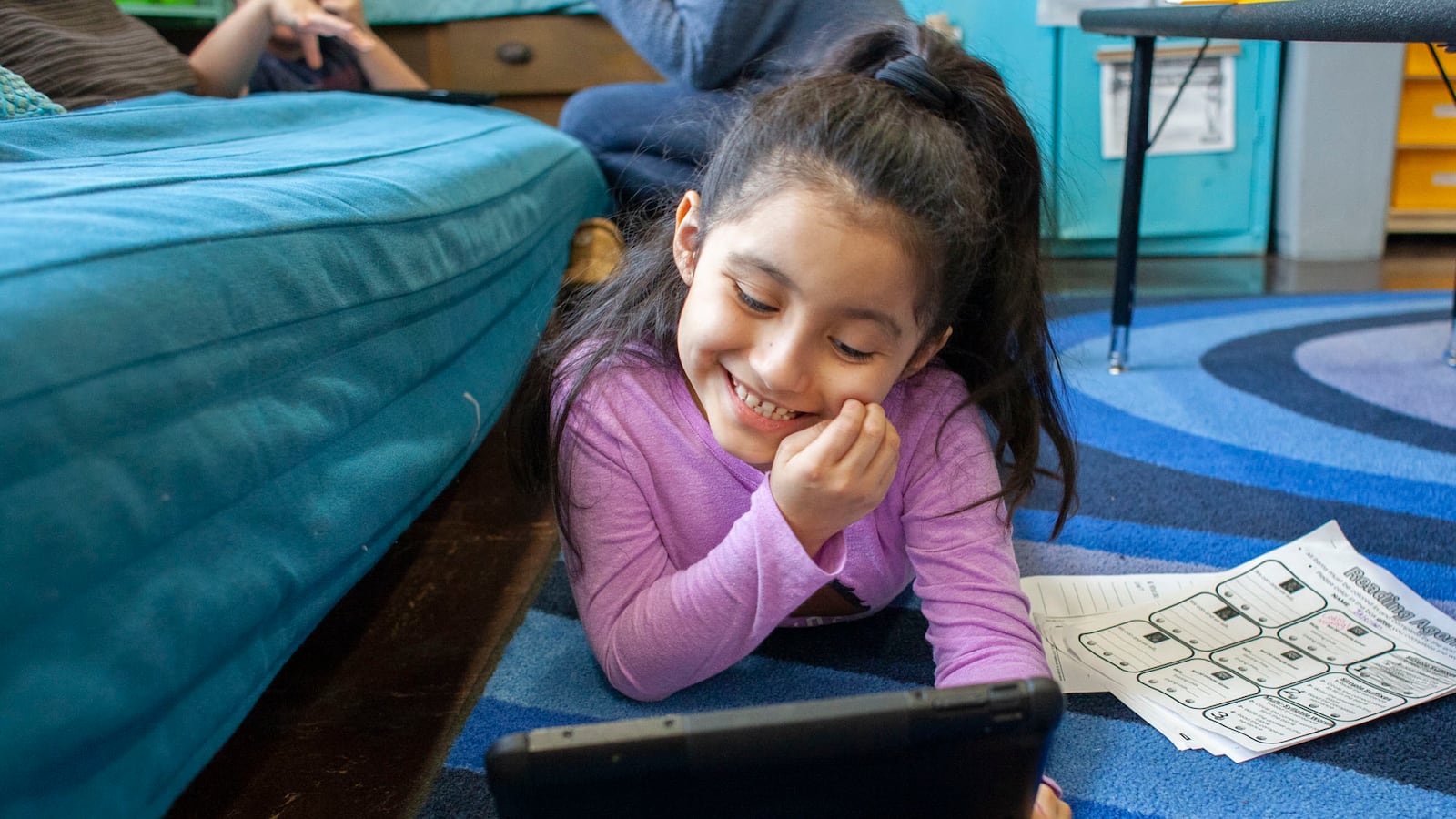Busy parents of toddlers are increasingly turning to remote video chat to interact with and teach their children, but a new study found that it can’t replace face-to-face interaction.
“At the age of two it really matters what the person who is with the child in real life is doing,” the report’s lead author, Georgene L. Troseth, a child psychologist at Vanderbilt University, said. “You cannot replace parents with screens because children at that age are still learning how representation works.”
Troseth’s team wanted to see how well live, responsive video interactions, via applications like Skype and FaceTime, could mimic the proven results of an adult responding to a toddler sitting in the same room with them, attempting to label new objects or learn new words.
Since the rise of educational television in the mid-20th century, scripted programs like “Sesame Street,” “Baby Einstein” and “Dora the Explorer” have sought to expand young children’s vocabulary, and teach new phrases and concepts. But a body of research has found that “toddlers are just notoriously bad at learning from video, even though the video might represent what real life looks like,” Troseth said.
Unlike scripted television shows, video chatting is responsive, which means that a parent reading to their child remotely can pause or say their child’s name in the context of the conversation. In studying the barriers to onscreen learning they saw, the authors also set out to answer the question: “Is the problem that the information comes from the screen or that the person on the screen is not responsive?”
Published in the peer-reviewed journal, Frontiers in Psychology, Troseth and her co-authors observed the learning patterns of 176, mostly white toddlers growing up in middle-class families, with a relatively even mix of male and female subjects. Troseth noted that although the researchers did not intend to use a skewed sample pool, they had trouble finding families of color and low-income families to participate in the study.
The research team found that the ability of the person on the other side of the screen to respond to [a 2-year-old child] is not near as critical as “what the person who is with the child in real life is doing,” Troseth said. For instance, if a toddler is talking to their grandmother via video chat, they’re more likely to remember new words if their parent is next to them supporting their understanding and ask questions like “What’s grandmother doing? What’s she holding? What’s that called?”
“At the age of two, they need adults — not just screens — to help them understand how screens work,” Troseth said. “That’s really the bottom line. … Children learn much more from screens if an adult will support it. They learn much less if they’re just watching the screen on their own, even if it’s a live person on Skype.”
Read the full study here: Let’s Chat: On-Screen Social Responsiveness Is Not Sufficient to Support Toddlers’ Word Learning From Video
Read a related study here: Co-viewing supports toddlers’ word learning from contingent and non-contingent video

